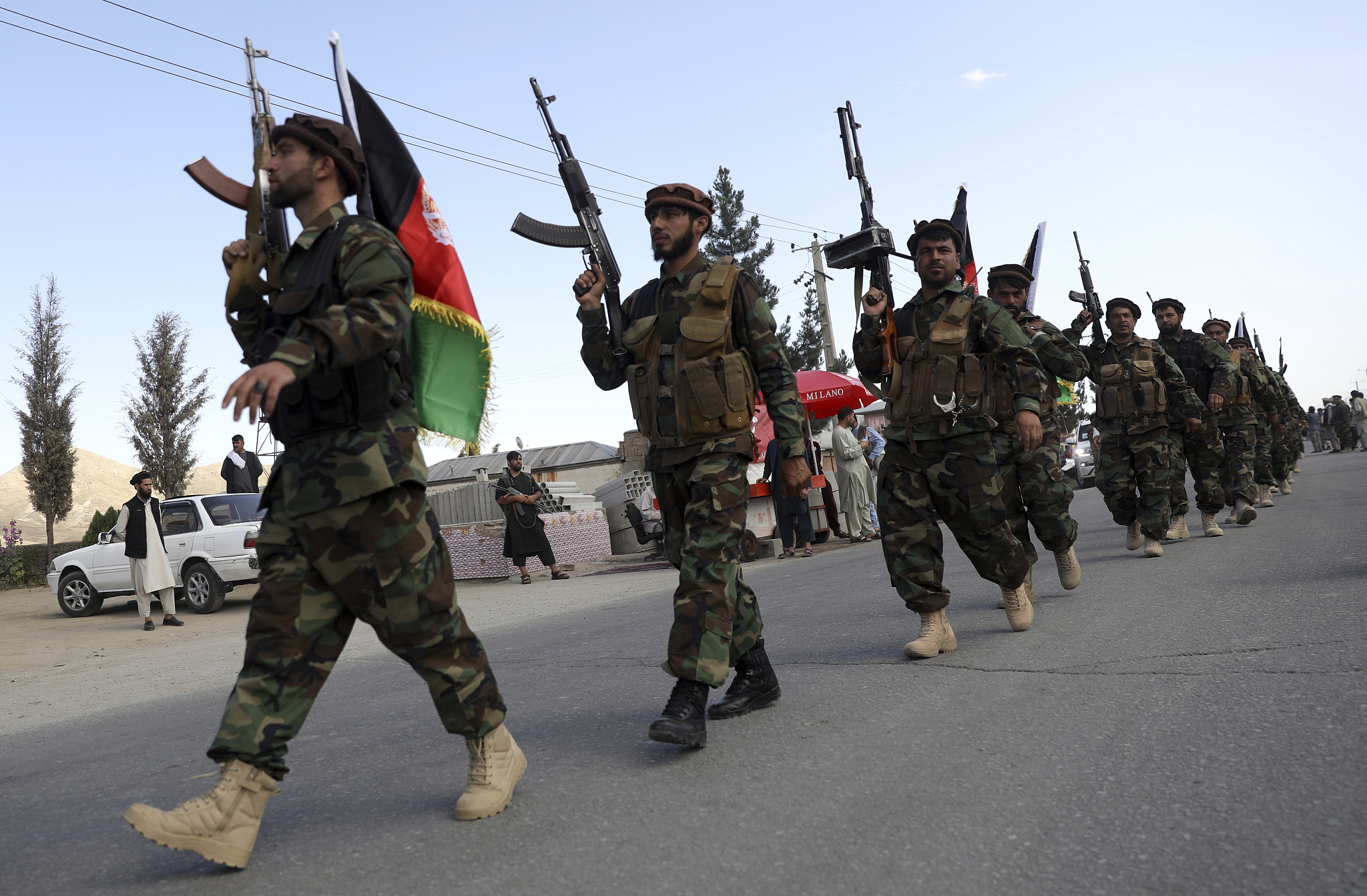
Editor's note: Hamzah Rifaat Hussain is a former visiting fellow at the Stimson Center in Washington and serves as assistant researcher at the Islamabad Policy Research Institute (IPRI) in Pakistan. The article reflects the author's opinions and not necessarily the views of CGTN.
The recent fall of the Panjwai district in the southern province of Kandahar in Afghanistan is symbolically significant. As the birthplace of the Taliban movement since its ouster by U.S. forces during the invasion in 2001 after 9/11, its capture marks a revival of the Taliban's perceived and de-facto dominance of Afghan affairs once again.
As Afghan forces countering this surge flee across the border to neighboring countries and surrender in the face of extreme violence and operational preparedness by the Taliban, the human, territorial and security costs of this surge raises questions on Washington D.C.'s hands off approach and whether adequate reparations will be paid to the troubled landscape.
Reparations must be paid given that in the absence of a peaceful dispensation materializing in the country, the Taliban gaining a strong hold in northern Afghanistan entails transnational implications due to the geographical proximity of the districts to Central Asia, western China and Russia.
The security quagmires unfolding are being complemented with an imminent refugee crisis with spillover effects in the region, Europe and North America as the plight of the average Afghan citizen worsens. Already, Afghan citizens are queuing up outside major embassies in Kabul to secure visas to exit the country in the wake of a perceived, inevitable Taliban takeover. Once again, the U.S. policy of envisioning peace in the absence of understanding local dynamics of an invaded country has failed to the point of an impending civil war in Afghanistan.
The civil war argument is not an alarmist assumption given that the Taliban now control roughly one third of 421 districts and district centers across the country. More importantly however, is the strategic significance of the areas under Taliban control. The town of Imam Sahib in Kunduz province for example is saddled directly opposite to Uzbekistan where a key trading route has been hijacked and will choke the national economy. Turning a blind eye would ensure that a breakdown of the Afghan security apparatus to the detriment of Afghan citizens would become imminent particularly for populations residing within and in close proximity to Kunduz, Badakhshan and Kandahar.

Afghan militiamen join Afghan defense and security forces during a gathering in Kabul, Afghanistan, June 23, 2021. /CFP
Afghan militiamen join Afghan defense and security forces during a gathering in Kabul, Afghanistan, June 23, 2021. /CFP
In all fairness, the Taliban now have a free pass without taking other stakeholders such as the federal government in Kabul on board which is precisely the strategy which Washington D.C. has myopically employed in other sovereign states undergoing turmoil. The policy of propping up dictatorships, democracies, militias, secessionist movements and resistances at the expense of other aggrieved parties based on the whims and wishes of the U.S. Congress has only resulted in prolonged discords with one entity gaining an upper hand at the expense of the other.
There exists a regional understanding to what is unfolding with powers such as Iran and Pakistan already bracing for the possibility of a Taliban takeover in Afghanistan as the Afghan national security forces are ill equipped with handling the vagaries of an opposition which was directly sanctioned by the United States to ensure peace. This irony is disturbing as the Afghan population is left with little hope in gaining economic subsistence as the writ of the federal government continues to be weakened significantly.
Irrefutably, these scenarios are unfolding because Washington D.C. has once again chosen to downplay internal Afghan dynamics and play the role of a distant savior which champions the cause of freedom, democracy and human rights in a land which it has no prior understanding off. Equally irrefutable is that security, economic and territorial costs are involved as the Taliban take near complete control which will haunt Afghanistan's future. The U.S. has plenty of reparations to pay.
(If you want to contribute and have specific expertise, please contact us at opinions@cgtn.com.)

